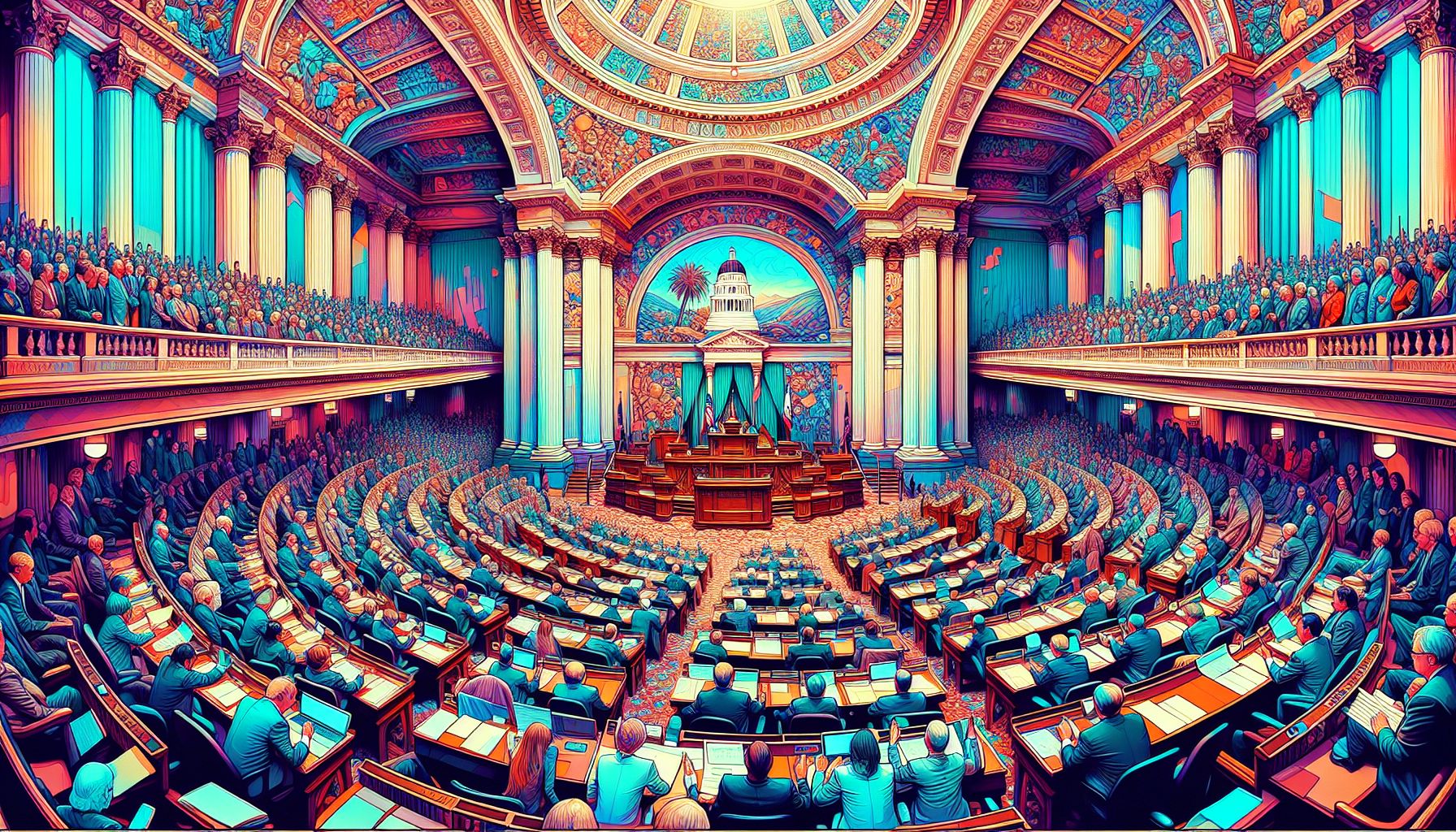California Passes Landmark AI Safety Bill, Setting National Precedent

California, Thursday, 29 August 2024.
California’s State Assembly approved groundbreaking AI safety legislation, mandating large AI model developers to test for catastrophic risks. The bill, supported by AI experts but opposed by tech giants, now awaits Governor Newsom’s decision. If signed, it could become a blueprint for national AI regulation.
AI Safety Protocols and Requirements
The newly passed legislation, known as SB 1047 or the Safe and Secure Innovation for Frontier Artificial Intelligence Models Act, mandates AI developers to implement comprehensive safety protocols. These include testing for potential hazards, ensuring shutdown capabilities, and maintaining detailed safety records. The goal is to mitigate risks such as cyberattacks, manipulation of critical infrastructure, and the creation of biological weapons. Developers must also submit annual compliance reports, which will be audited by a third party starting January 1, 2026[1].
Support and Opposition
The bill has garnered support from key AI safety advocates, including Elon Musk, who has long championed AI regulation. Senator Scott Wiener, the bill’s author, highlights the need for balanced innovation and safety, stating that the two are not mutually exclusive[2]. However, major tech companies like Google, Meta, and OpenAI have opposed the legislation, arguing that it may stifle innovation and impose undue burdens on developers[3].
Broad Implications
SB 1047 is designed to regulate AI systems that require over $100 million (€90 million) in data to train, setting a high threshold that currently no AI models have reached[4]. The bill’s passage in the California Assembly, with a vote of 41-9, marks a significant step towards stricter AI regulation in the United States. The legislation aims to protect not only the public but also the AI industry from malicious use, as emphasized by Anthropic, a company that has warned of emerging AI risks within the next 1-3 years[5].
Governor’s Decision and Future Impact
Governor Gavin Newsom has until the end of September to decide whether to sign the bill into law. The decision will be closely watched, as it could set a precedent for other states and potentially influence federal AI regulation. The bill’s supporters argue that establishing these safety protocols now will prevent future catastrophes and ensure the responsible development of AI technologies[6].
Bronnen
- www.euronews.com
- time.com
- digitaldemocracy.calmatters.org
- www.washingtonpost.com
- www.techrepublic.com

